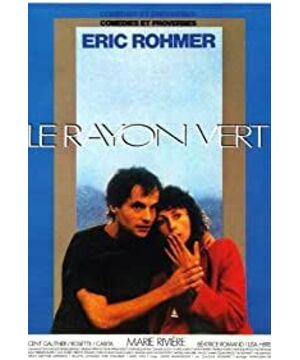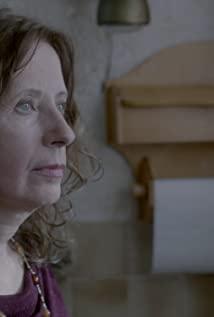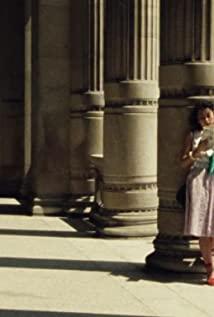Copyright notice: This article was first published on the public account of Shanyi International Women's Film Festival, and the copyright belongs to Shanyi International Women's Film Festival.
Remember when a man at the dinner table brought a plate of flowers to her? Delphine grabbed a white flower absentmindedly at first (the first time it was even empty, the second time it was worthy), but she didn't stop grabbing, so the white flower fell, and she picked up another pink petal, After playing one or two games, she threw it away again; when the man was about to take the plate away, she glanced at it and picked up the little white flower she had chosen at the beginning. She kept the flower in her fingertips, combed its petals, and stroked it in her palm—all the while she kept repeating those useless defenses, just as she repeatedly picked up and dropped the flower—at last she seemed to finally realize its existence As usual, she looked away from the conversation object, put Xiaohua under her nose, and sniffed the fragrance of the flowers: the editing point suddenly appeared at this moment, and her long and prejudiced self-defense came to an abrupt end.
We always think that dialogue dominates Rohmer's films; but at this moment we find that it is Delphine's body language that causes the image to change; the words are more like random flakes floating in the lens. I believe that many viewers who love Rohmer have the same feeling, that is, it is difficult for us to tell the charm of his images - he seems to just "present" everyday life, but we also know that everything presented is definitely different. unusual. Aside from the heart-wrenching chatter of the characters, all we can do is reiterate the images that keep passing by in the film: the gleaming beaches of South France, the dazzling greenery, the gleaming girls, in their infinite In the beautiful clothes of style... and any further organization seems to be powerless. The poetics hidden in these images does not belong to some form of abstraction because it is attached to concrete matter; yet it is far from being concrete, though scattered throughout all the concrete matter in the film. To illustrate this invisible poetics, here we refer to Rohmer's image as a "body".
As if some kind of suggestion has already been formed, in Rohmer's films, the camera pays great attention to capture the tedious body movements of the characters. The girls' body language is so rich and special that many times amazing things happen: when they eat, sometimes the gesture of eating is even more than the eating itself (they will break a cookie, or continue to bite a long-standing A bit of pulp left on the stem after eating red fruit); and when Delphine walked along a shaded path, she would reach out and stroke everything around her like a twig! The fact is that, under the tender and patient waiting of the camera, the boundaries of the female body disappear: on the one hand, the body is continuously extended towards the environmental objects; The physical body is generally included in the range of perception, a Merleau-Ponty-style "perceptual field" [1]. The body has no boundaries, it generates the flowers and plants on the roadside, the benches, it even generates the conversations we value most. There is a bizarre scene in the film. After Delphine returns to Paris, he sits in a street cafe and chats with his female partner, telling her that he is looking for the next place. The female companion gave a vague critique of the weather in Paris: she looked up to the sky and made a corresponding gesture, « La... » ("This...") - interestingly, this is just a phrase that lacked a clear intention in the chat The word of response is so unimportant in the dialogue, but the camera, which has been sticking to the character, obeys her hands and eyes at this time, and immediately turns to the cloudy sky of Paris. This is why we call it a kind of "body": there is no distance between Rohmer's camera and the character. As far as Green Light is concerned, it ultimately constitutes a state of "seeking" and "wandering"—in the film, it is not just the character Delphine that wanders, but the image-material flow that seeks and wanders like a body, So it's actually the flow of matter in the film that becomes another Delphine on the hunt.
We all know how Rohmer treats his characters. In his beloved "moral stories," the characters are never morally judged. In "Green Light", Rohmer undoubtedly created a somewhat sad girl in reality. She is so lonely, but no one loves her. However, all this is caused by her own sensitive temperament... But Rohmer passed The image restores this "sadness" to countless subtle emotions and empathic intentions flowing through her heart, and restores it to "body"—a material flow of pre-values. A certain cinematic art is born here: everyone in the film despise Delphine, but only the audience in front of Rohmer's image cannot do this (as long as it is not a cold-hearted audience), we have become her search in the image. foraging body. Similar female images are not uncommon in Rohmer's works, whether it is Heidi, the female collector who "runs wild", or the graceful Mood with a kind of village wish, or the women in "Autumn Tale". , they all seem to have the general impression of being easily despised; and when Rohmer always reduces "morality" to neutral emotions and motives, this contrasts with the previous general impression, making the characters light as a poem. It is difficult to objectively remember the subtle social moral lapses of the characters, but rather get lost in their rich, limitless images. As mysterious as they are, most of the time we don't actually fully understand what they're thinking; but when their soft hands twiddle their hair haphazardly or slip their collars off their shoulders, we immediately grasp their emotions and motivations— — This is physical empathy. On this level, Rohmer is a true humanist, as if some kind of interpretation of his beloved Kantian morality, that "the will to the good is the only good", so adept at the immediacy of his images , freely interpreting the truth of the characters from the shackles of some "immorality".
[1] "The reason why this spirit can access the truth of all things is because the body seems to be attached to all things." "Exploring the World of Perception: Space" Merleau-Ponty
View more about Summer reviews











